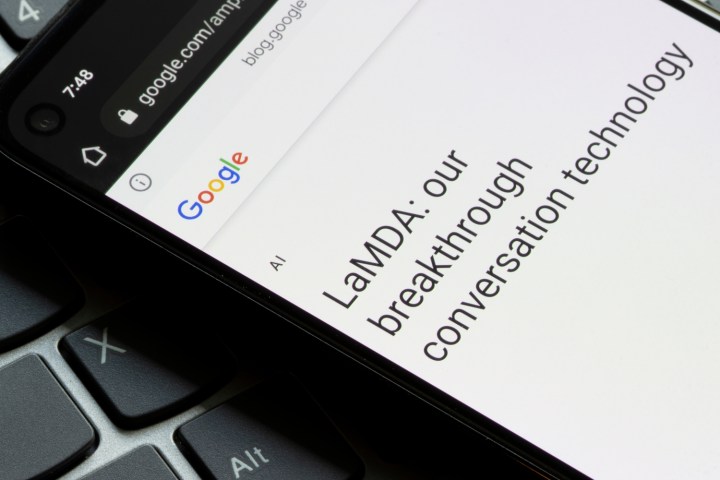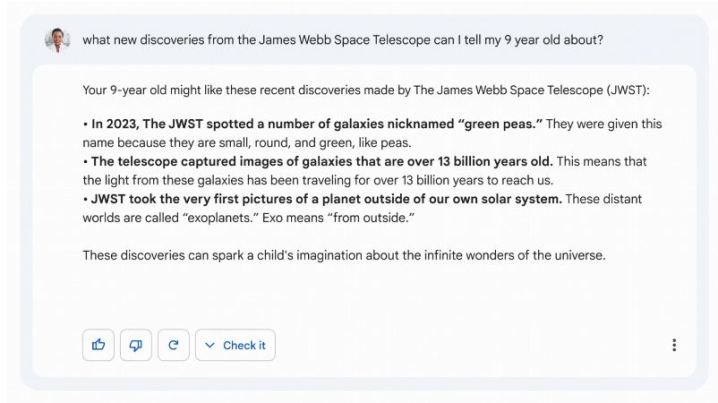These are heady days if you’re following the world of artificial intelligence (AI). ChatGPT is taking over the world, Microsoft is adding its tech to Bing, and Google is working on its own AI called Bard.
Except, Bard might not quite be ready for prime time — and Google just proved it during its own tech demonstration. Oops.

The error came during a slide explaining how Bard could help a person explain new discoveries from the James Webb Space Telescope (JWST) to their nine-year-old child. Seems simple enough, you might think.
However, Bard made the following three suggestions:
- In 2023, the JWST spotted a number of galaxies nicknamed “green peas”
- The telescope captured images of galaxies that are over 13 billion years old
- JWST took the very first picture of a planet outside of our own solar system
It’s that last entry that has ruffled some feathers. That’s because the first photo of a planet outside our solar system (otherwise known as an exoplanet) was actually taken way back in 2004 by the Very Large Telescope (VLT).
As explained by NASA, that image shows exoplanet 2M1207b orbiting a brown dwarf star. That not only makes it the first image captured of an exoplanet, but also means that 2M1207b is the first exoplanet seen to orbit a brown dwarf. It’s a double whammy that unfortunately went unacknowledged by Bard.
As pointed out by astrophysics Ph.D. student Isabel Angelo on Twitter, the irony is that a quick Google search could have prevented this problem. Simply searching “first photo of an exoplanet” puts the NASA page at the top of the pile.
That said, Bard wasn’t too far off. September 2022 marked the first time that the JWST itself had snapped a photo of an exoplanet (in this case, it was exoplanet HIP 65426 b). But as any fluent speaker of English will know, there’s a world of difference between saying “the JWST took the very first picture of an exoplanet” and “the JWST took its first picture of an exoplanet.”
A bumpy road ahead

That lack of nuance aptly highlights some of the concerns surrounding the increasing role of AI in everyday life. If things like Bard and ChatGPT are integrated into search engines, they’re going to need to be not only fast but accurate too. Otherwise, a simple search could infect you with untrue information without any hint that it has happened.
After all, Google’s demonstration didn’t require you to visit a dodgy website making questionable claims, which might have raised red flags. Instead, the answers to the posed question are framed as if they’re coming directly from Google itself. Given Google’s global reach and name recognition, that could make the information it spits out much more believable — even if it’s totally incorrect.
Search AIs clearly need plenty of work before they can be treated with more than a tiny iota of trust. Google itself says it’s not going to release Bard until it has reached a “high bar for safety.” Clearly, it still has a long way to go.
Editors' Recommendations
- The best ChatGPT plug-ins you can use
- We may have just learned how Apple will compete with ChatGPT
- GPTZero: how to use the ChatGPT detection tool
- Google brings AI to every text field on the internet
- How to generate AI art right in Google Search




